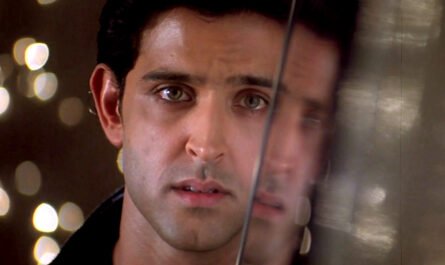” ;}
}
if(document.getElementById(‘subwait_top’)){document.getElementById(‘subwait_top’).style.visibility = ‘hidden’;}
}
else
{
document.getElementById(div_errmsg).innerHTML = “
“;
document.getElementById(div_errmsg).style.display = “block”;
if(document.getElementById(‘subwait_top’)){document.getElementById(‘subwait_top’).style.visibility = ‘hidden’;}
if(document.getElementById(subscribebtn)){document.getElementById(subscribebtn).disabled = false;}
}
}
}
if (subreq.readyState == 1)
{
if(document.getElementById(‘subwait_top’)){document.getElementById(‘subwait_top’).style.visibility = ‘visible’;}
if(document.getElementById(subscribebtn)){document.getElementById(subscribebtn).disabled = true;}
}
}
return false;
}
Sector 36 goes for gruesomeness and shock; watching it needs a tough heart or a quick averting of the eyes, warns Deepa Gahlot.
The Nithari Killings of 2006 had pierced India’s doesn’t-happen-here complacency.
The sensational case of murder, sex, cannibalism and necrophilia in a nondescript area of Noida had dominated the media for months.
The BBC made a documentary Slumdog Cannibal (2012), Netflix’s True Crime documentary The Karma Killings came out in 2017, and the idea was picked up for the movie Murder 2 and Deepa Anappara’s novel Djinn Patrol On The Purple Line.
There didn’t seem to be much outrage, however, when the two accused Moninder Singh Pandher and his domestic help Surinder Koli, were acquitted in 2023, for lack of evidence and shoddy investigation.
The lingering question, if any, is how could such a thing happen without anybody noticing? The fact is, that it could possibly happen again, and nobody will notice, or care.
Apathy is now our society’s default position.
Eighteen years later, Aditya Nimbalkar’s film Sector 36 exhumes the bones of the case, making use of all the salacious details but adding no new insights to that horrific chapter in the police files.
Ram Charan Pandey (Deepak Dobriyal) is the corrupt inspector in the Shahadra police station, who could barely be bothered to get off his chair, even as the posters of missing children prolifetate on the notice board.
The kids belong to the slums where migrants live, and their complaints do not even merit an FIR.
Meanwhile, in a mansion by the basti, Prem Singh (Vikrant Massey), left to mind the house while the owner is away, obsessively watches a KBC-like game show, abducts neighbourhood kids, rapes, kills, eats some body parts, sells organs, and flushes the rest into the drain.
In the normal squalor and stink of a slum gutter, the smell goes unnoticed, and the cops just assume the kids ran away or were sold by their own families.
The chaste Hindi-speaking Pandey, who plays Raavan in the colony’s Ram Leela, would not have been kicked aware from his dereliction of duty, but for his own daughter getting picked up.
She is saved, but the now chastened inspector starts investigating seriously.
When he talks to the owner of the house, Balbir Bassi (Akash Khurana), the wealthy businessman pulls strings of his old boys’ network that includes the DCP (Darshan Jariwala) and a minister or two.
The DCP only swings into action when a rich kid is kidnapped, and there is media attention to be gained. Following up with Bassi on a missing sex worker earns Pandey a suspension.
Later, with the encouragement of the honest new DCP (Baharul Islam), Pandey has enough evidence to arrest Prem.
Massey must have taken the role of the awful pervert, just for that one scene of interrogation, where Pandey tries to hold back his rising disgust, as Prem very calmly lists his crimes, with the why, when and how.
He seems proud of what he has done, and arrogantly demands to be let off in time to catch the latest episode of the game show, secure in the knowledge that his boss will get him off.
Prem’s confession leads to the discover of many more dead kids in the drain behind the bungalow that came to be known as The House Of Horrors.
The film goes for the gruesomeness and shock — watching it needs a tough heart or the quick averting of the eyes — and even tries to justify Prem’s perversion with a flashback of his own abuse by his uncle, a butcher, who taught him how to dismember animal carcasses.
As just another crime thriller, Sector 36 is well made. But this was not an ordinary crime, and the film needed much more than just a police procedural.
With the benefit of hindsight, the advantage of fictionalising, and without the pressures of the box office, Writer Bodhayan Roychaudhary and Director Nimbalkar could have delved deeper into the case and its impact.
Obviously, class plays an important role but did the deplorable attempt at a cover up by the cops have any implication?
How was society of the time and the media affected by it?
The performances are excellent.
Deepak Dobriyal has a clearly defined character graph and holds his own against Massey, who is unfortunately made to play Prem with an almost charismatic insouciance.
The film warns about the disturbing visuals but is still nightmarish. Worse still, when even a cursory search reveals what really happened, and how the monsters eventually escaped the noose.
Sector 36 streams on Netflix.
Sector 36 Review Rediff Rating:





